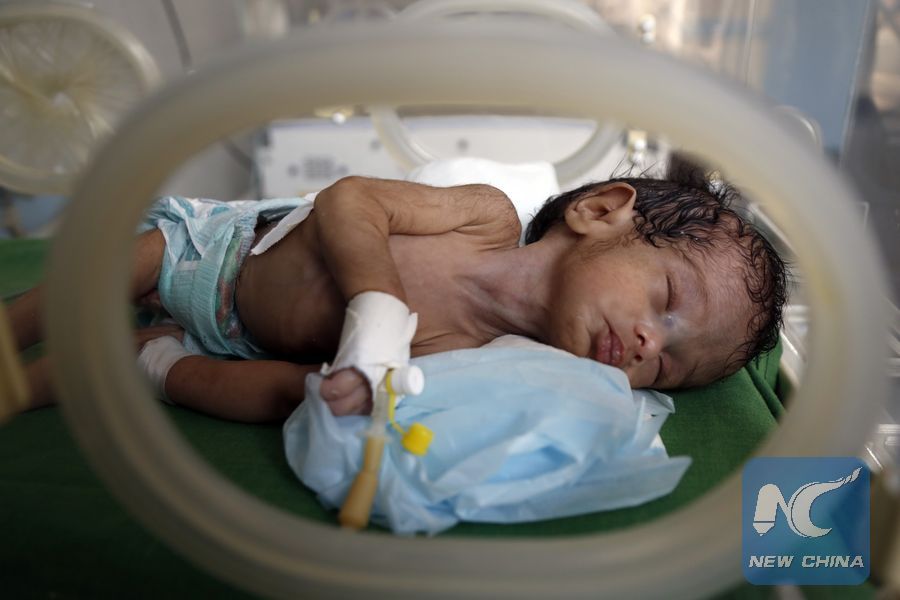
File Photo: A prematurely-born baby lies inside an incubator in al-Sabeen hospital in Sanaa, Yemen, on June 11, 2019. Armed conflicts in Yemen have worsen the situation of women and children at birth. Essential public services, including healthcare crucial to support mothers and childbirth, are on the brink of total collapse. (Xinhua/Mohammed Mohammed)
UNITED NATIONS, June 17 (Xinhua) -- UN Undersecretary-General for Humanitarian Affairs Mark Lowcock on Monday painted a horrifying picture of the war in Yemen, saying about half a million people will die by 2022 if the war continues.
If fighting lasts until 2022, close to half a million people will lose their lives, including more than 300,000 who will die from hunger, lack of health care and related causes, Lowcock cited a University of Denver study commissioned by the UN Development Programme as saying.
"That is twice as many people dying as the model predicts if the war were to stop this year," he told the Security Council.
Apart from the heavy toll, there would also be a profound decline in the status of survivors throughout the country, he warned. A quarter of children would be malnourished, and nearly 40 percent of children would be out of school.
"You can imagine better than me what the implications of this might be for security and stability in the wider region," said Lowcock, who is also the UN emergency relief coordinator.
If the war continues, the world will need an even larger and an even more expensive relief operation, he said.
At 4.2 billion U.S. dollars, this year's Yemen response plan is already the world's biggest. "If the fighting doesn't stop, today's requirements will be a fraction of what we'll need to keep people alive a few years from now," he said.
Lowcock observed that the Yemeni conflict is trapped in a loop of time. "Yemen is getting more violent, not less. The conflict is getting worse, not better."
All the fighting has led to relatively few major shifts in control. Today, the large majority of Yemenis live in areas controlled by Houthi rebels and their allies. After tens of thousands of airstrikes, shells, mortars and ground clashes, this has changed only marginally since 2016, he said.
"So the war is not only brutal, it is unwinnable. Everyone agrees on this last point, at least in their public statements. And yet the war continues," he added.

